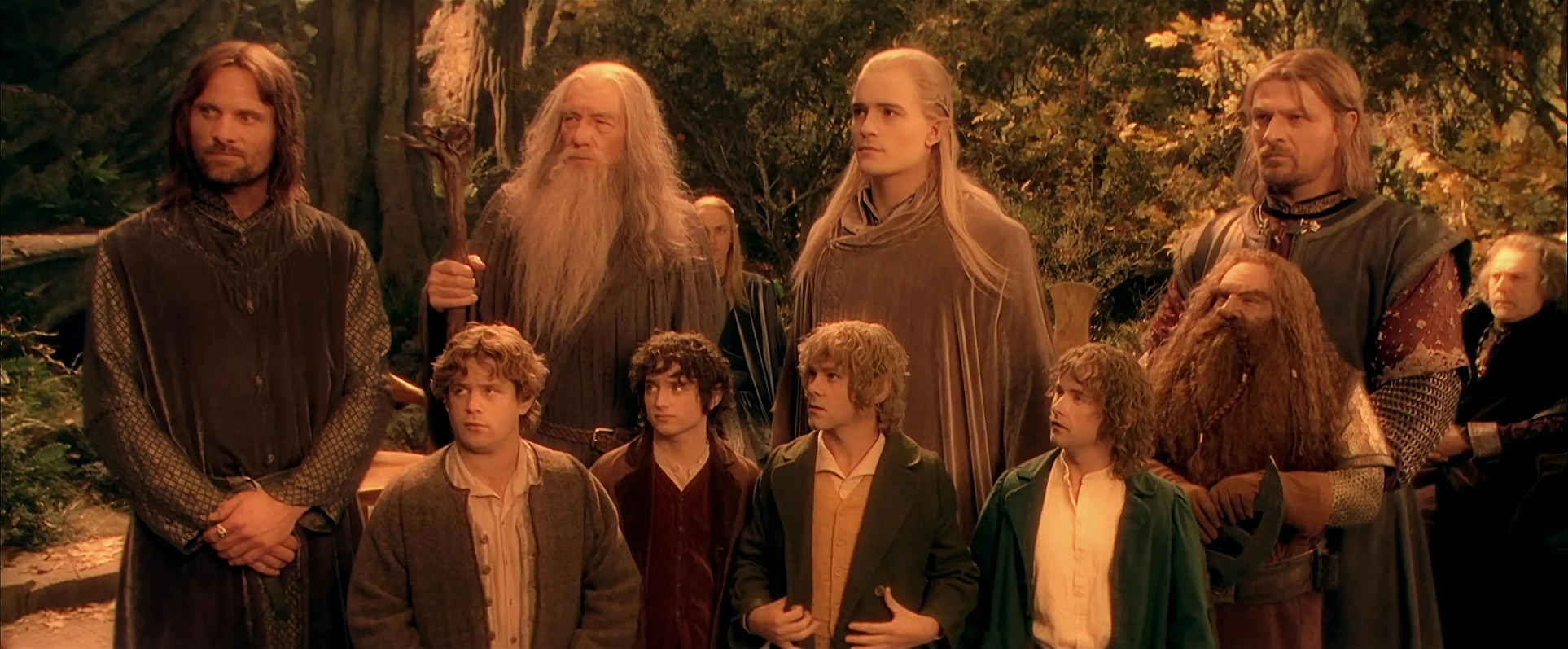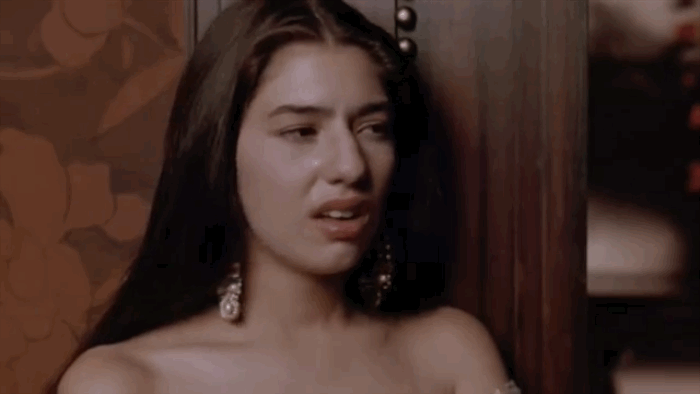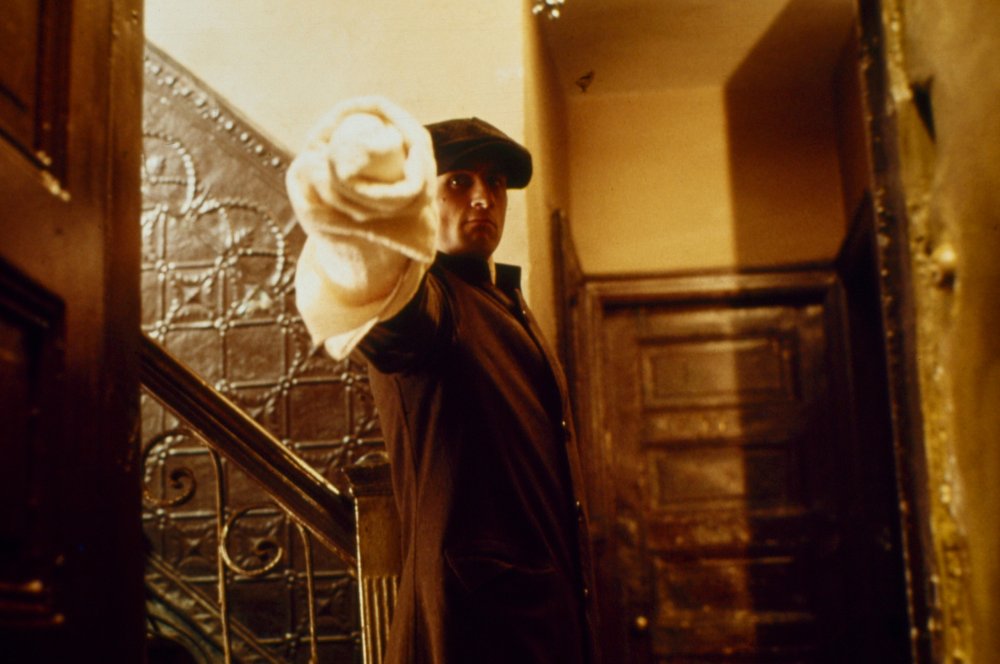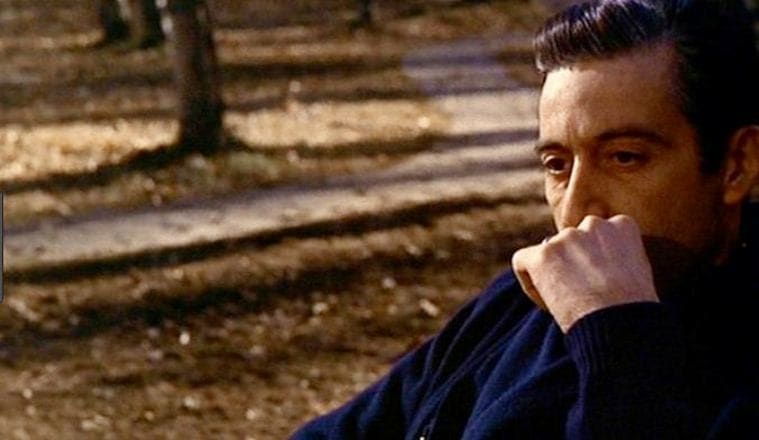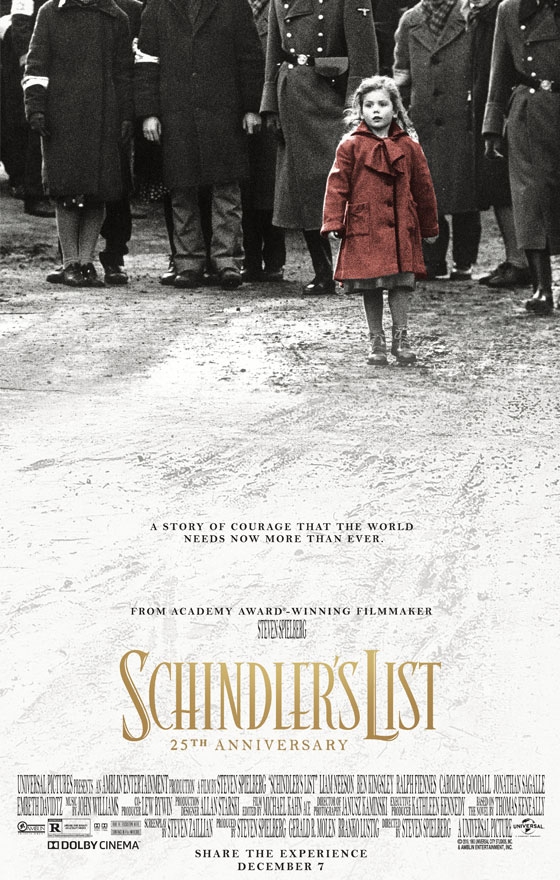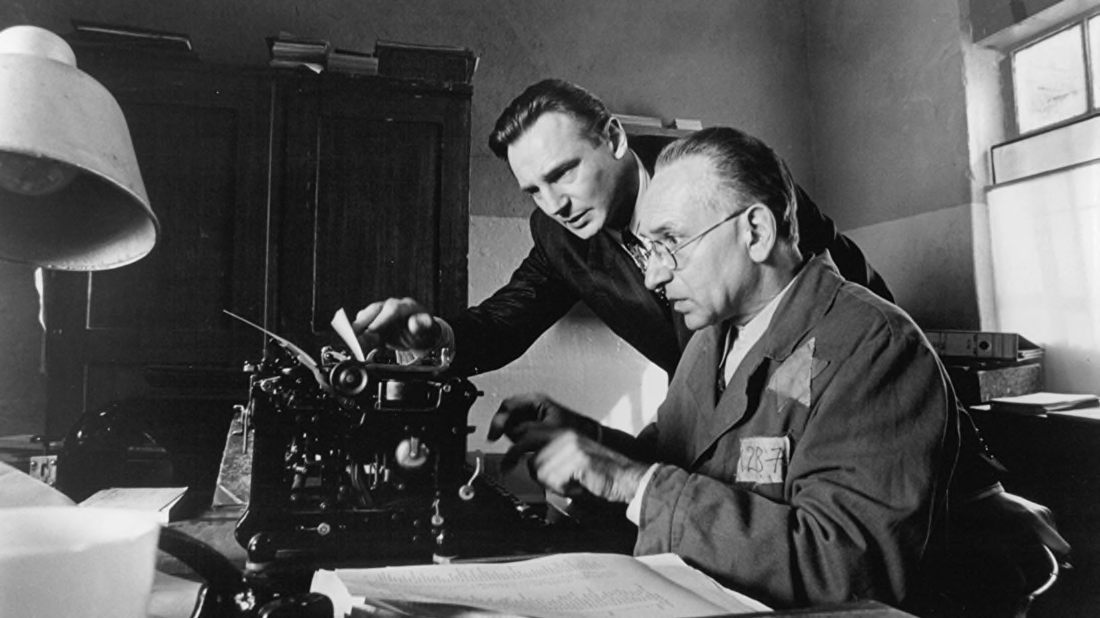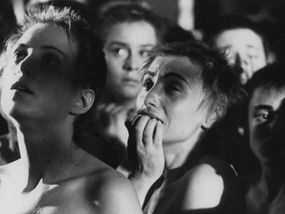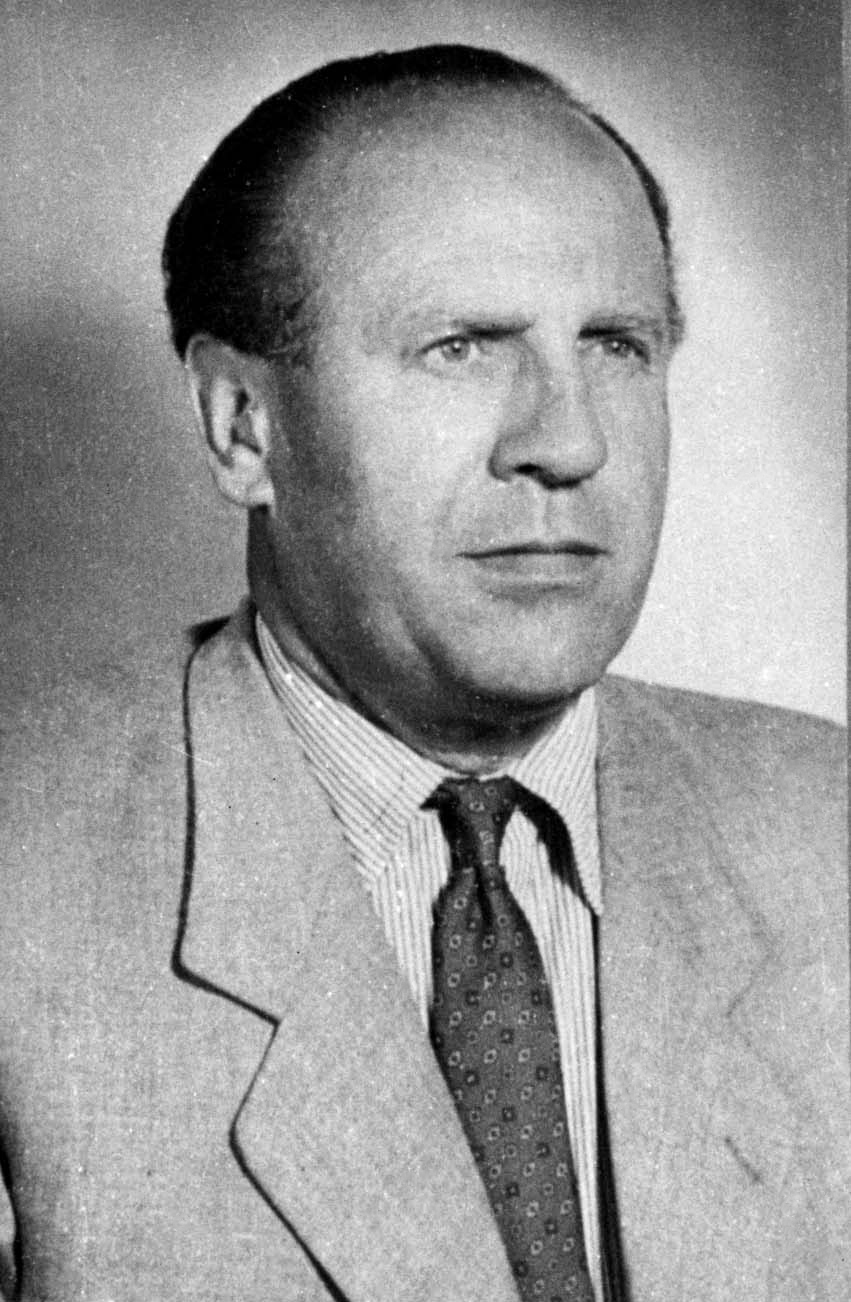THE RETURN OF THE KING
Editor's Note: This review is of the theatrical version.
And thus this massive Rings cycle conclude with The Lord of the Rings: The Return of the King. The concluding part of The Lord of the Rings trilogy was richly rewarded come Oscar-time, winning eleven Academy Awards out of eleven nominations. As such, it not only tied the record for most Oscar wins with Ben-Hur and Titanic, but holds the record for the biggest sweep in Academy history.
Exactly how much its 11-for-11 record is due to the film itself versus that it was the last chance to reward this epic series is a subject of debate. Now, more than fifteen years after it concluded a massive epic, we can look on The Return of the King with a slightly clearer eye. The Return of the King is a massive film that perhaps throws in more than it can carry, but one that moves quite fast for its running time and concludes things on a strong note.
Keeping to the story established in The Fellowship of the Ring and continuing in The Two Towers, The Return of the King follows two intertwined stories. The first is the continuing journey of hobbits Frodo Baggins (Elijah Wood) and Samwise Gamgee (Sean Astin) into the forbidding land of Mordor to destroy The One Ring, a powerful object that will allow its former owner Sauron to rule over all Middle-Earth and plunge it in darkness and evil. They must go into Mordor for the One Ring can be destroyed only by being thrown into the fires of Mt. Doom. Guiding them is the creature known as Gollum (Andy Serkis), whose loyalty is dubious at best, with Sam thoroughly opposed and Frodo more accepting of.
The second story involves the actual war of conquest Sauron is fighting against Men. Aragorn (Viggo Mortensen), heir to Gondor's throne, calls upon Denethor, Stewart of Gondor (John Noble) to join with neighboring Rohan to fight against Sauron's forces. Denethor, however, is a bit bonkers at the moment: mourning his son Boromir and having little interest in his other son Faramir (David Wenham), sending him on a suicide mission then despairing over both Faramir's apparent death and the massive army besieging his city.
 As the massive armies fight, two little hobbits and their conflicted guide push further on, facing many dangers including a crazed Gollum, set on retaking his 'Precious' from Frodo. Things culminate in massive battles involving an Army of the Dead, massive creatures, a warrior Princess defeating the Witch-King himself, and at long last the quest completed.
As the massive armies fight, two little hobbits and their conflicted guide push further on, facing many dangers including a crazed Gollum, set on retaking his 'Precious' from Frodo. Things culminate in massive battles involving an Army of the Dead, massive creatures, a warrior Princess defeating the Witch-King himself, and at long last the quest completed.
Now with Middle-Earth firmly in the Age of Men our four Hobbits return to their home in The Shire, though for at least one of them and his Uncle Bilbo (Ian Holm), one last journey awaits into the West.
I remember going to see The Return of the King in theaters and the reaction was enthusiastic, at least until the first 'ending'. By perhaps the time the hobbits got back to the Shire and the film seemed to not know if it would end, the audience turned hostile, with members shouting for it to be over. Perhaps in retrospect we see how director Peter Jackson, along with his co-screenwriters Fran Walsh and Phillipa Boyens, could not find a way to formally and finally end this massive concluding chapter of this massive trilogy. Just as one thought the film ended, something else popped up again and again, and the audience by this point was exhausted.
As I look back on The Return of the King, I thought that perhaps it could have been shorter and perhaps more blasphemous, both it and The Two Towers could have been shorter. This came to me when we had a brief visit to the ruins of Isengard, which played a large role in The Two Towers but added nothing in The Return of the King. It's as if by now Jackson really wanted to put in as much as possible and didn't know when to stop.
As a side note, the creeping bloatedness of The Hobbit trilogy prequels released a decade later seem to have a precedent in The Return of the King.
However, to its credit The Return of the King did an excellent job pushing the stories forward and an especially excellent job in pacing. The film moves quite well to where you barely notice how long it is, at least until after the fall of Sauron where it finally started lurching from one thing to another.
As another side note, the audience I saw The Return of the King burst out laughing when Arargon started his hymn, as if the King belting out a musical number was just too much to take.
The performances are exceptional. High credit goes to Serkis as the damned Gollum, with the film even giving him a chance to appear on-camera versus motion-capture. In his performance Serkis gave his character a mix of horror and pathos, where one felt sorrow for and anger at him. Wood had to carry so much on his shoulders as the main character, and in Return of the King he comes into his own. His Frodo is a haunted figure, driven nearly insane by both The One Ring and the arduous journey.
Frodo's darkness as portrayed by Wood is brilliantly countered by Astin's portrayal of the ever-loyal Samwise. He despairs but never gives into despair and hopelessness, maintaining a sense of hope however dim, in this painful journey.
It's both a good and bad thing that the rest of the cast from both Fellowship of the Ring and Two Towers keeps to how they started out. Credit should be given to Billy Boyd, Dominic Monaghan and Miranda Otto as Pippin, Merry and Eowyn respectively. Each had their 'warrior' moment where he/she showcased courage under fire. Mortensen too had bravura moments whenever he rallied armies living and dead to his cause.
However, Ian McKellen as the wizard Gandalf, Orlando Bloom as Elf warrior Legolas and John Rhys-Davies as Dwarf warrior Gimli basically did as they have before: either spout off words of wisdom or keep some running tab of kills. To be fair I did enjoy the softening of relations between Legolas and Gimli to where they were genuine friends versus adversaries due to their separate ethnicities for lack of a better term.
I think now that part of my issue with Return of the King, on seeing it again, revolves around a certain repetitiveness that stems from The Two Towers. Both Two Towers and Return of the King have leaders on thrones mourning their dead sons. Both Two Towers and Return of the King have massive battles as their centerpieces, with battering rams and storming hordes. Return of the King even has two characters who appear dead but are not (Faramir and Frodo).
And then there are the various 'endings', a major point of criticism then and now. One friend wisecracked that the Academy gave Return of the King an Oscar for each ending it had, and one of the film's major flaws is that it kept going long after the war was over. It didn't seem to know how to end, so it kept ending, throwing in one apparent conclusion after another until audiences grew frustrated. This series of unfortunate finales hampers the film.
However, on a visual and emotional level, with the craftsmanship and performances elevating it, The Lord of the Rings: The Return of the King is an epic and exceptional, if albeit excessively lengthy, conclusion to one of the grandest epics in cinema.
DECISION: A-
2004 Best Picture Winner: Million Dollar Baby
 As the massive armies fight, two little hobbits and their conflicted guide push further on, facing many dangers including a crazed Gollum, set on retaking his 'Precious' from Frodo. Things culminate in massive battles involving an Army of the Dead, massive creatures, a warrior Princess defeating the Witch-King himself, and at long last the quest completed.
As the massive armies fight, two little hobbits and their conflicted guide push further on, facing many dangers including a crazed Gollum, set on retaking his 'Precious' from Frodo. Things culminate in massive battles involving an Army of the Dead, massive creatures, a warrior Princess defeating the Witch-King himself, and at long last the quest completed.Now with Middle-Earth firmly in the Age of Men our four Hobbits return to their home in The Shire, though for at least one of them and his Uncle Bilbo (Ian Holm), one last journey awaits into the West.
I remember going to see The Return of the King in theaters and the reaction was enthusiastic, at least until the first 'ending'. By perhaps the time the hobbits got back to the Shire and the film seemed to not know if it would end, the audience turned hostile, with members shouting for it to be over. Perhaps in retrospect we see how director Peter Jackson, along with his co-screenwriters Fran Walsh and Phillipa Boyens, could not find a way to formally and finally end this massive concluding chapter of this massive trilogy. Just as one thought the film ended, something else popped up again and again, and the audience by this point was exhausted.
As I look back on The Return of the King, I thought that perhaps it could have been shorter and perhaps more blasphemous, both it and The Two Towers could have been shorter. This came to me when we had a brief visit to the ruins of Isengard, which played a large role in The Two Towers but added nothing in The Return of the King. It's as if by now Jackson really wanted to put in as much as possible and didn't know when to stop.
As a side note, the creeping bloatedness of The Hobbit trilogy prequels released a decade later seem to have a precedent in The Return of the King.
However, to its credit The Return of the King did an excellent job pushing the stories forward and an especially excellent job in pacing. The film moves quite well to where you barely notice how long it is, at least until after the fall of Sauron where it finally started lurching from one thing to another.
As another side note, the audience I saw The Return of the King burst out laughing when Arargon started his hymn, as if the King belting out a musical number was just too much to take.
The performances are exceptional. High credit goes to Serkis as the damned Gollum, with the film even giving him a chance to appear on-camera versus motion-capture. In his performance Serkis gave his character a mix of horror and pathos, where one felt sorrow for and anger at him. Wood had to carry so much on his shoulders as the main character, and in Return of the King he comes into his own. His Frodo is a haunted figure, driven nearly insane by both The One Ring and the arduous journey.
Frodo's darkness as portrayed by Wood is brilliantly countered by Astin's portrayal of the ever-loyal Samwise. He despairs but never gives into despair and hopelessness, maintaining a sense of hope however dim, in this painful journey.
It's both a good and bad thing that the rest of the cast from both Fellowship of the Ring and Two Towers keeps to how they started out. Credit should be given to Billy Boyd, Dominic Monaghan and Miranda Otto as Pippin, Merry and Eowyn respectively. Each had their 'warrior' moment where he/she showcased courage under fire. Mortensen too had bravura moments whenever he rallied armies living and dead to his cause.
However, Ian McKellen as the wizard Gandalf, Orlando Bloom as Elf warrior Legolas and John Rhys-Davies as Dwarf warrior Gimli basically did as they have before: either spout off words of wisdom or keep some running tab of kills. To be fair I did enjoy the softening of relations between Legolas and Gimli to where they were genuine friends versus adversaries due to their separate ethnicities for lack of a better term.
I think now that part of my issue with Return of the King, on seeing it again, revolves around a certain repetitiveness that stems from The Two Towers. Both Two Towers and Return of the King have leaders on thrones mourning their dead sons. Both Two Towers and Return of the King have massive battles as their centerpieces, with battering rams and storming hordes. Return of the King even has two characters who appear dead but are not (Faramir and Frodo).
And then there are the various 'endings', a major point of criticism then and now. One friend wisecracked that the Academy gave Return of the King an Oscar for each ending it had, and one of the film's major flaws is that it kept going long after the war was over. It didn't seem to know how to end, so it kept ending, throwing in one apparent conclusion after another until audiences grew frustrated. This series of unfortunate finales hampers the film.
However, on a visual and emotional level, with the craftsmanship and performances elevating it, The Lord of the Rings: The Return of the King is an epic and exceptional, if albeit excessively lengthy, conclusion to one of the grandest epics in cinema.
DECISION: A-
2004 Best Picture Winner: Million Dollar Baby
.jpg)


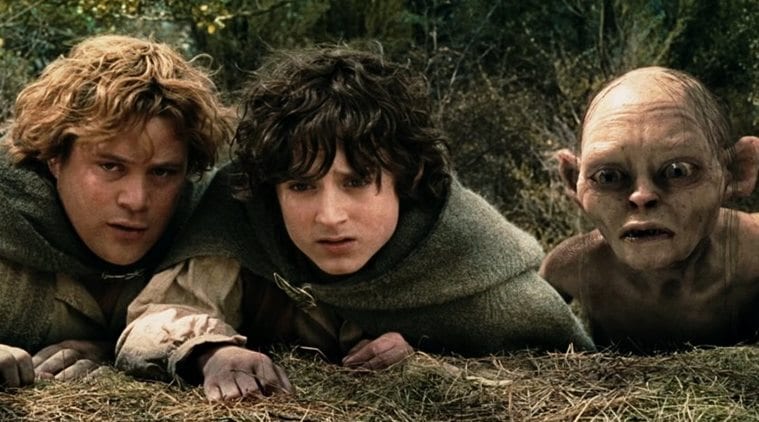
.jpg)
